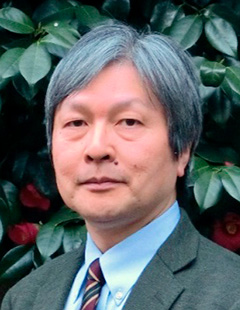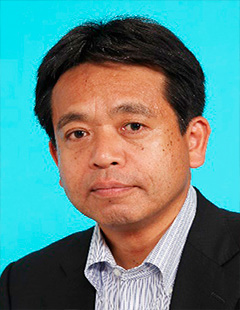Honda Foundation, a public-interest incorporated foundation created by Soichiro Honda, the founder of Honda Motor Co., Ltd., and his younger brother Benjiro Honda and currently headed by Hiroto Ishida, is pleased to announce that the Honda Prize 2016*1 will be awarded to Dr. Akira Isogai, professor of the Graduate School of Agricultural and Life Sciences at The University of Tokyo, and Dr. Hiroyuki Yano, professor of the Division of Creative Research and Development of Humanosphere, Research Institute for Sustainable Humanosphere at Kyoto University, who have made tremendous contributions to the development of high-efficiency production methods of Cellulose Nanofiber (CNF), its application to products, and the enhancement of its potential for further utilization.
Dr. Isogai and Dr. Yano are the 37th laureates of the Honda Prize. The award ceremony will be held at the Imperial Hotel in Tokyo on November 17, 2016. In addition to the prize medal and certificate, the laureates will be awarded 10 million yen in total.
CNF is a general term for a bundle of cellulose microfibril that is a basic structure substance of plant cell wall. This nanofiber is one-fifth the weight of steel and five times or more its strength while it has one-fiftieth of linear thermal expansion coefficient of glass. It is a plant-derived, environment-friendly and sustainable resource, which accounts for 50% or more of plant resources, such as wood, and can be found abundantly on earth. Toward early realization of a low-carbon society, it is attracting attention for its utilization as a substitute for petroleum-based plastics, a reinforcing fiber for structural materials and a modifier.
Dr. Isogai has developed “TEMPO*2-mediated oxidation” as a chemical approach in CNF production and significantly improved the efficiency of CNF production that conventionally required energy-intensive mechanical disintegration. This development paved the way for intensive research for CNF production and its application to industry.
Likewise, Dr. Yano has developed the “Pulp Direct-Kneading Method (Kyoto Process)” that realizes nanoscale fibrillation of pulp fiber and uniform dispersion into resin in the production of composite materials reinforced by CNF. Conventionally, CNF had to be first produced and mixed with composite materials, such as resin, in order to produce resin composites. However, the Kyoto Process has removed such procedures and enabled a simple process, which resulted in substantial reduction in time and cost. In addition, he has made tremendous contributions in expanding a range of CNF application by playing a leading role in industry-government-academia activities.
Until recently, CNF has scarcely been adopted to industrial use due to the high cost of nanofiber-scale disintegration and its characteristics that are difficult to control and handle. However, its application as a functional and structural material is now expanding by adopting the method developed and discovered by Dr. Isogai and Dr. Yano.
Established in 1980, the Honda Prize is awarded annually to an individual or group to recognize accomplishments in the field of ecotechnology*3, which works to advance human achievement while concurrently preserving the natural and human environment, thus contributing to the creation of a truly humane civilization.
Utilizing CNF is the first step to transform the conventional way of manufacturing that is based on the fossil resource-dependent industry to creation of sustainable social infrastructure on which renewable materials are used to produce not only commodity goods but also high-performance parts and components and applied to industrial products such as automobiles and home appliances, as well as to building materials, packaging materials, etc. As a consequence, this is considered as contributing to the Honda Foundation’s goal—“Creating a truly humane civilization.” Therefore, the reformation of the CNF production method and contributions to the expansion of its utilization area made by Dr. Isogai and Dr. Yano are considered appropriate for the Honda Prize recognition.
- *1Honda Prize: Japan’s first international science and technology award inaugurated in 1980.
- *2TEMPO: General term for an organic compound “2, 2, 6, 6-tetramethylpiperidine-1-oxyl, radical”
- *3Ecotechnology: Coined from “ecology”—the house of civilization—and “technology.” It has been put forward since 1979 as the guiding philosophy for a better symbiosis between technology-driven civilization and nature.
For more information, contact the Honda Foundation via:
phone at +81-3-3274-5125 or fax at +81-3-3274-5103
Honda Yaesu Building, 2-6-20 Yaesu, Chuo-ku, Tokyo 104-0028, Japan
http://www.hondafoundation.jp/en/
Dr. Akira Isogai
Professor, Department of Biomaterials Science, Graduate School of Agricultural and Life Sciences, The University of Tokyo

| Date of Birth | ||
| October 19, 1954 | ||
| Academic Qualification | ||
| 1980: | Bachelor from Faculty of Agriculture, The University of Tokyo | |
| 1982: | Master Degree from Graduate School, Division of Agricultural Science, The University of Tokyo | |
| 1985: | Ph.D from Graduate School, Division of Agricultural Science,The University of Tokyo | |
| 1985-1986: | Post-doctoral fellow, The Institute of Paper Chemistry, Appleton, WI, USA | |
| 1986-1994: | Assistant Professor, Faculty of Agriculture, The University of Tokyo | |
| 1989-1990: | Visiting Scientist, Forest Products Laboratory, United States Department of Agriculture, Madison, WI, USA | |
| 1994-1996: | Associate Professor, Faculty of Agriculture, The University of Tokyo | |
| 1996-2003: | Associate Professor, Graduate School of Agricultural and Life Sciences, The University of Tokyo | |
| 2003-present: | Professor, The University of Tokyo | |
| Membership | ||
| The Cellulose Society of Japan: President (2013- ) Japan TAPPI (Technical Association of Pulp and Paper Industry): Board, Chairman of Wood Science Committee (2003- ) High Performance Paper Society of Japan: Vice President (2015- ) Fellow of International Academy of Wood Science (2006- ) The Nanofiber Society: Board (2009- ) American Chemical Society, TAPPI, Society Polymer Science Japan, etc. : Member |
||
| Research Achievement and Publications | ||
| Review articles, books & book chapters: 167 Patents & patent applications: 132 |
||
| Awards | ||
| Marcus Wallenberg Award from Sweden (2015) Anselme Payen Award from American Chemical Society, USA (2015) Japan Prize of Agricultural Science and Yomiuri Agricultural Science (2016) TAPPI (USA) Fellow (2016) and other 13 awards |
||
Dr. Hiroyuki Yano
Professor, Division of Creative Research and Development of Humanosphere,
Research Institute for Sustainable Humanosphere, Kyoto University

| Date of Birth | ||
| February 6, 1959 | ||
| Academic Qualification | ||
| 1982: | Bachelor of Agriculture (Wood Science and Technology), Kyoto University | |
| 1984: | Master of Agriculture (Wood Science and Technology), Kyoto University | |
| 1986: | Assistant Professor, Dept. of Forestry, Kyoto Prefectural University | |
| 1989: | Doctor of Agriculture, Kyoto University | |
| 1992: | Lecturer, Dept. of Forestry, Kyoto Prefectural University | |
| 1997-1998: | Visiting Scientist, Forest Products Laboratories, CSIRO, Australia | |
| 1998: | Associate Professor, Wood Research Institute, Kyoto University | |
| 2002: | Visiting Associate Professor, Institute of Wood Technology, Akita Prefectural University | |
| 2004-present: | Professor, Research Institute for Sustainable Humanosphere, Kyoto University | |
| Membership | ||
| Nanocellulose Forum: President (2014-2016) Fellow of International Academy of Wood Science (2008- ) Japan Wood Research Society: Board (2014- ) Society of Polymer Science Japan, Society of Materials Science Japan, Cellulose Society of Japan, Japan Society of Polymer Processing, Society of Rubber Science and Technology Japan, etc.: Member |
||
| Research Achievement and Publications | ||
| Review articles, books & book chapters: 101(A. N. Nakagaito, H. Yano: The effect of morphological changes from pulp fiber towards nano-scale fibrillated cellulose on the mechanical properties of high-strength plant fiber based composites, Applied Physics A,78,547-552(2004)., H. Yano, J. Sugiyama, A. N. Nakagaito, M. Nogi, T. Matsuura, M. Hikita, K. Handa: Optically Transparent Composites Reinforced with Networks of Bacterial Nanofibers, Advanced Materials, 17(2), 153-155(2005), A. N. Nakagaito, M. Nogi, H. Yano: Displays from transparent films of natural nanofibers MRS Bulletin, 35(3) (2010) 214-218, and others) Patents & patent applications: 82 |
||
| Awards | ||
| Young Scientist Award, Japan Wood Research Society (1989) Hayashi Jisuke Award, The Cellulose Society of Japan (2005) Japan Wood Research Society Award, Japan Wood Research Society (2009) |
||